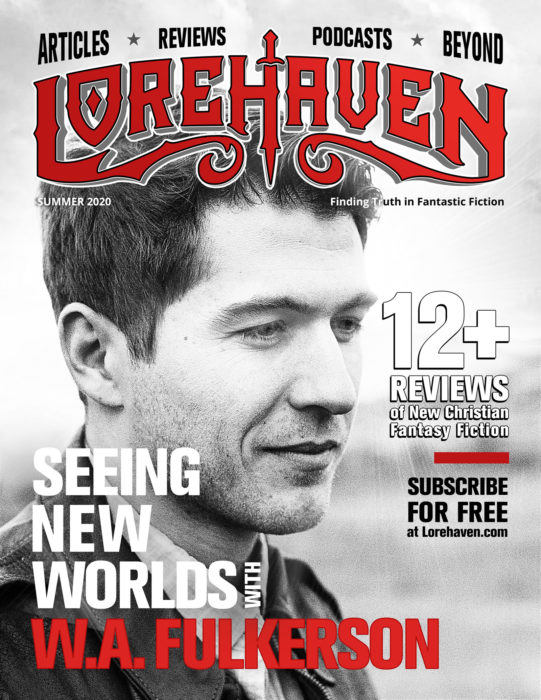The Dangers of Anti-Pearl-Clutching
You know that aunt who reacts in horror, eyes wide in shock, at the mere mention of Harry Potter? Or many other things?
She may or may not have any literal string of pearls to grasp, but you get the idea.
She may not be your auntie, but she’s somebody’s. She and women like her—and yes, men like her too—set the eyes of a certain group of people a-rolling.
Sure, Auntie, whatever.
Let’s call what they do “anti-pearl-clutching.”
Speculative fiction deals with topics that pearl-clutchers avoid, like magic or aliens. So most of our readers are probably aligned with the anti-pearl-clutching crowd. There’s a reason for that: we’ve seen too many bad examples of pearl-clutching.
A Christmas Story famously evokes Ralphie wanting a BB gun, but being warned that he shouldn’t have one because “you’ll shoot your eye out.” This is over-exaggerated to the point of being silly. It’s a classic example of pearl-clutching. After all, we may actually know people who used BB guns for years, perhaps even recklessly, who suffered nothing more than skin welts. So clearly BB guns are safe, right?
. Over 23,000 kids in the United States went to an emergency room in the 1990s because of BB gun injuries. In 1990 alone, twelve kids died from injuries sustained by BB guns. (Point-blank BB gun shots to the eye may go around the eye, into the brain.)
Sure, it may be laughable to avoid BB guns at all costs. But perhaps we need some middle ground between pearl-clutching (forbidding any use of air rifles) and a “do whatever you like” approach. We could allow the guns, but recommend caution and perhaps some eye protection.
For other things, too, we can call for realistic safety and awareness of danger.
Perhaps we can compare anti-pearl-clutching to an adolescent phase in a person’s thinking. As a child, you know about dangers and might be paralyzed by fear. Then as an adolescent, you might laugh off danger and do really risky stuff.
Not all adolescents are risk-takers. Those who are may suffer some fender-benders or worse because of a lack of caution. Later as adults, they come to understand healthy fear: not fear that paralyzes you, but a touch of fear that makes you more alert than you would otherwise be. That’s a fear that causes you to put on your seat belt and slow down when road conditions are bad.
Among Christians, since so many people have over-exaggerated Satan’s power, our natural reaction may be to head the opposite direction and think the Devil is a chump. We may assume we don’t need to think about Satan at all, since we know that Christ on the cross has defeated Satan.
Yes, Satan is defeated. But based on what the Bible actually says, he’s still active and still dangerous. To defeat Satan’s work in our lives, Christians must live for God fully and truly—as opposed to fighting him directly.
But our prayer life will naturally be affected by our realization that spiritual warfare is real, and that the Devil can lead people into sin and wants to deceive whomever he can. Satan still significantly influences our culture. For own safety and that of others, we must be aware of this fact and alert to our own vulnerability—not in panic, but with trust that God will deliver us when we need him.
We needn’t descend into paranoia by worrying about what Satan could do. But we should take realistic precautions! U.S. military doctrine encourages a person to consider probable “avenues of approach.” That is, we’re trained to ask, “If the enemy wants to attack me here, what’s the most likely way they’d come?” Army operations orders include a section on enemy activity that lists the most probable action and also the most dangerous action the enemy could take.
Similarly, because we as Christians have an active enemy trying to hurt us, it’s worthwhile to consider what our enemy would do under the circumstances. We might even adapt the old initials WWJD, for “What Would Jesus Do?”, and ask ourselves what Satan or his allies would do in a particular situation: WWSD?
Lest this sound unbiblical, remember that the apostle Paul warns us to be aware of the devil’s schemes (2 Corinthians 2:11). His context suggests that our awareness of Satan’s methods does help a person avoid falling for Satan’s schemes.
So perhaps we ought to consider what Satan might do in any given situation. This includes the way we look at fiction. No, Satan won’t “put your eye out” if you glance at the wrong thing. But some stories contain messages that damage our walk with God, even if the damage may not happen all at once or in every case be obvious.
This spiritual war is not fictional. We should confront wrong in entertainment as much as we celebrate what’s good.
An earlier version of this article was published Jan. 16, 2020 at SpeculativeFaith.com.






























Share your fantastical thoughts.